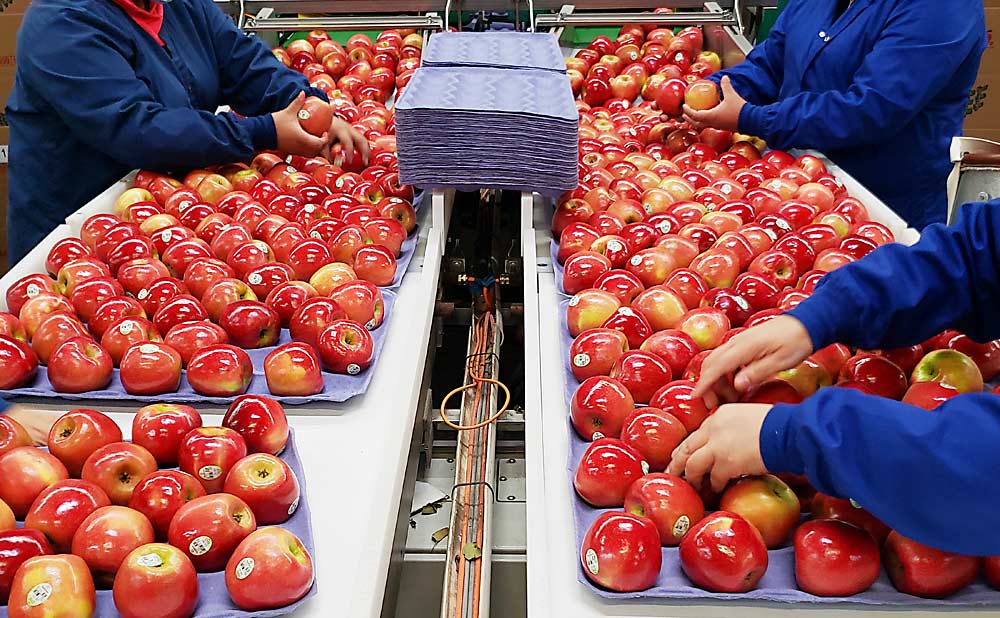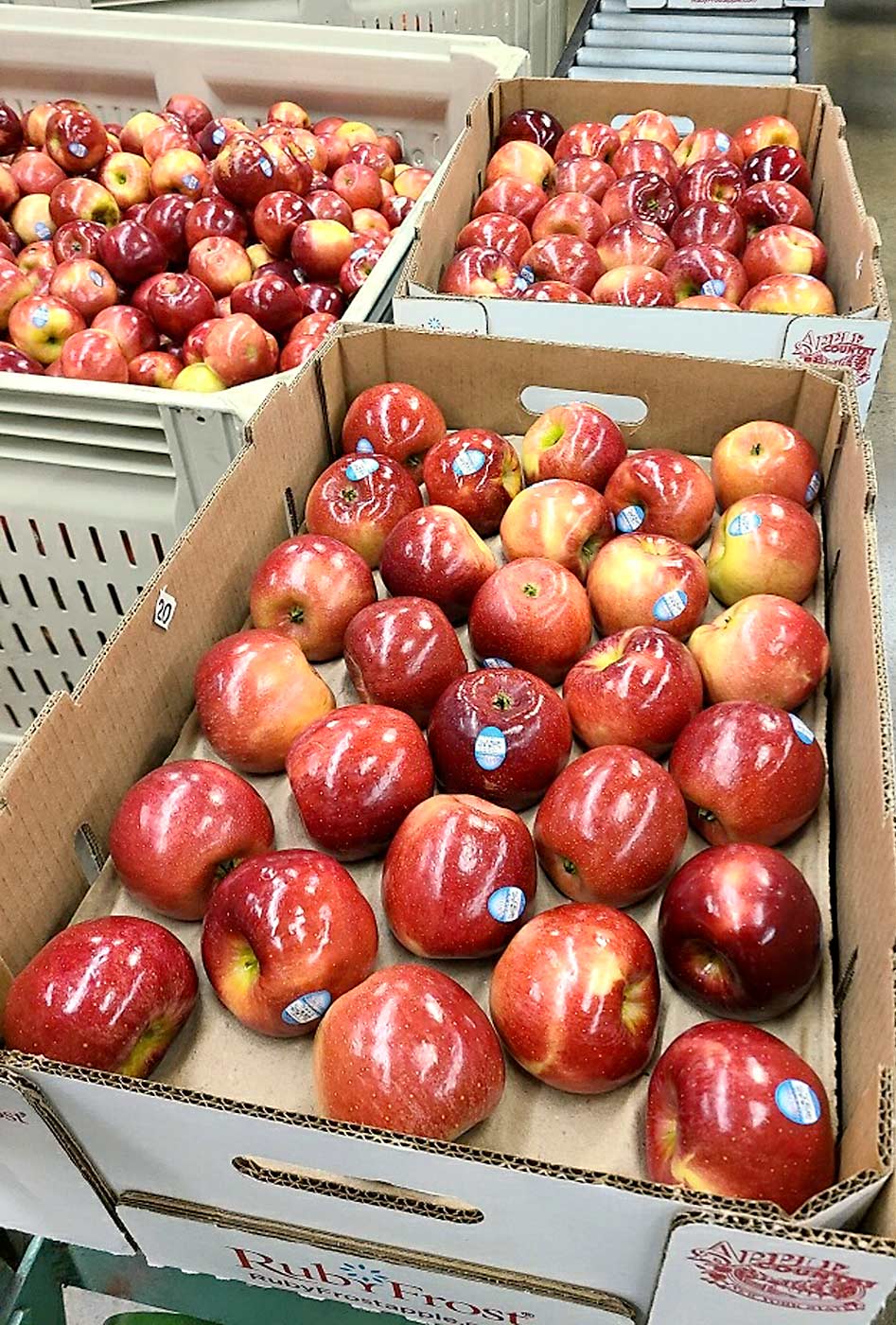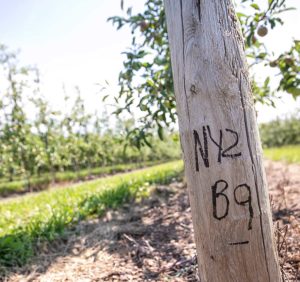
Crunch Time Apple Growers — the collective of New York state growers responsible for SnapDragon and RubyFrost apples — expanded its distribution and marketing network in 2021 to grant Pennsylvania’s Rice Fruit Co. and Michigan’s Applewood Fresh Growers and Riveridge Produce Marketing license to market its proprietary varieties.
The agreement is for sales, packing and distribution. Crunch Time is not yet expanding commercial plantings outside of New York, but expansion is being considered and may be included in future agreements. Direct-market growers outside of New York are allowed to grow the apples, as long as they join the cooperative, said Jessica Wells, Crunch Time’s executive director.
Up until 2021, seven New York-based companies (along with Pennsylvania’s Hess Bros. Fruit Co., which serves many New York growers) marketed the varieties. But a growing amount of SnapDragon and RubyFrost acreage is approaching maturity (at 429,000 bushels, Crunch Time’s 2021 crop was 35 percent higher than the previous crop) and the cooperative needs a greater sales reach for the additional volume, Wells said.
When the Michigan marketing companies first began exploring partnerships with Crunch Time, one of their concerns was that their Michigan suppliers might object to them marketing apples that could only be grown in New York. But both companies decided that adding a potentially popular new variety to their offerings could ultimately boost sales of Michigan-grown apples.
“Branded, emerging varieties could be a good thing for Michigan growers in general,” said Brian Coates, vice president of sales and business development for Applewood Fresh Growers. “You have to find things that make you more valuable to your customers.”
Coates hadn’t heard any concerns from Applewood’s Michigan growers about selling Crunch Time apples, as of mid-November. He said selling SnapDragon and RubyFrost seemed like a natural fit with Applewood’s emphasis on selling emerging varieties such as Rave, SweeTango, Kanzi, Kiku and EverCrisp. And these emerging varieties, in conjunction with established varieties Honeycrisp, Gala and Fuji, will give the company more to offer buyers. That means better returns for Applewood’s Michigan growers in the long run, he said.
When Riveridge Produce first began exploring the opportunity, there was some discussion about the viability of adding new varieties to its sales mix. But with the positive qualities and growth potential of SnapDragon, especially, Riveridge decided adding a good “bonus variety” to its portfolio of Michigan apples had the potential to give a sales boost to its Michigan growers, said marketing manager Trish Taylor.

New York 1, the apple marketed as SnapDragon, and New York 2, marketed as RubyFrost, were released by Cornell University’s apple breeding program more than a decade ago. In 2010, Cornell partnered with Crunch Time to release both apples as managed varieties. Orchards that wanted to grow them commercially had to be located in New York state and had to join the cooperative. In 2020, the cooperative began extending sublicenses to grow and market both varieties to direct-market growers outside of New York. Thirty growers in 13 states have signed on so far, Wells said.
As of 2021, 152 New York growers were raising about 1,000 acres of SnapDragon and 400 acres of RubyFrost. SnapDragon sales have done well enough that Crunch Time decided to gradually expand that variety, with a goal of roughly 1,500 acres by 2026. Demand for RubyFrost is not as strong, its target market being the 30 percent of the apple-eating population that prefers a not-so-sweet variety. Expanding RubyFrost acreage will be considered as needed, Wells said.
—by Matt Milkovich







Leave A Comment